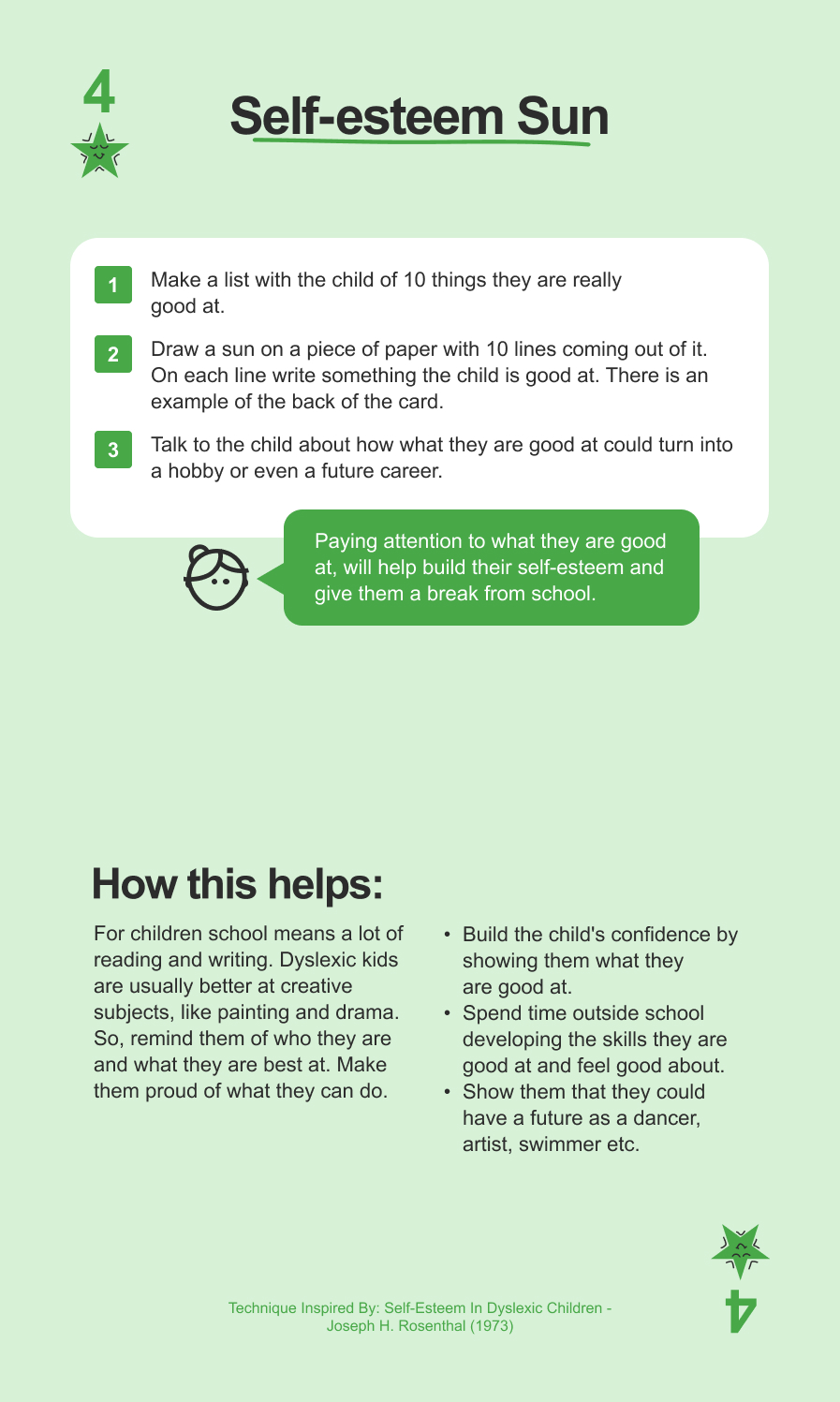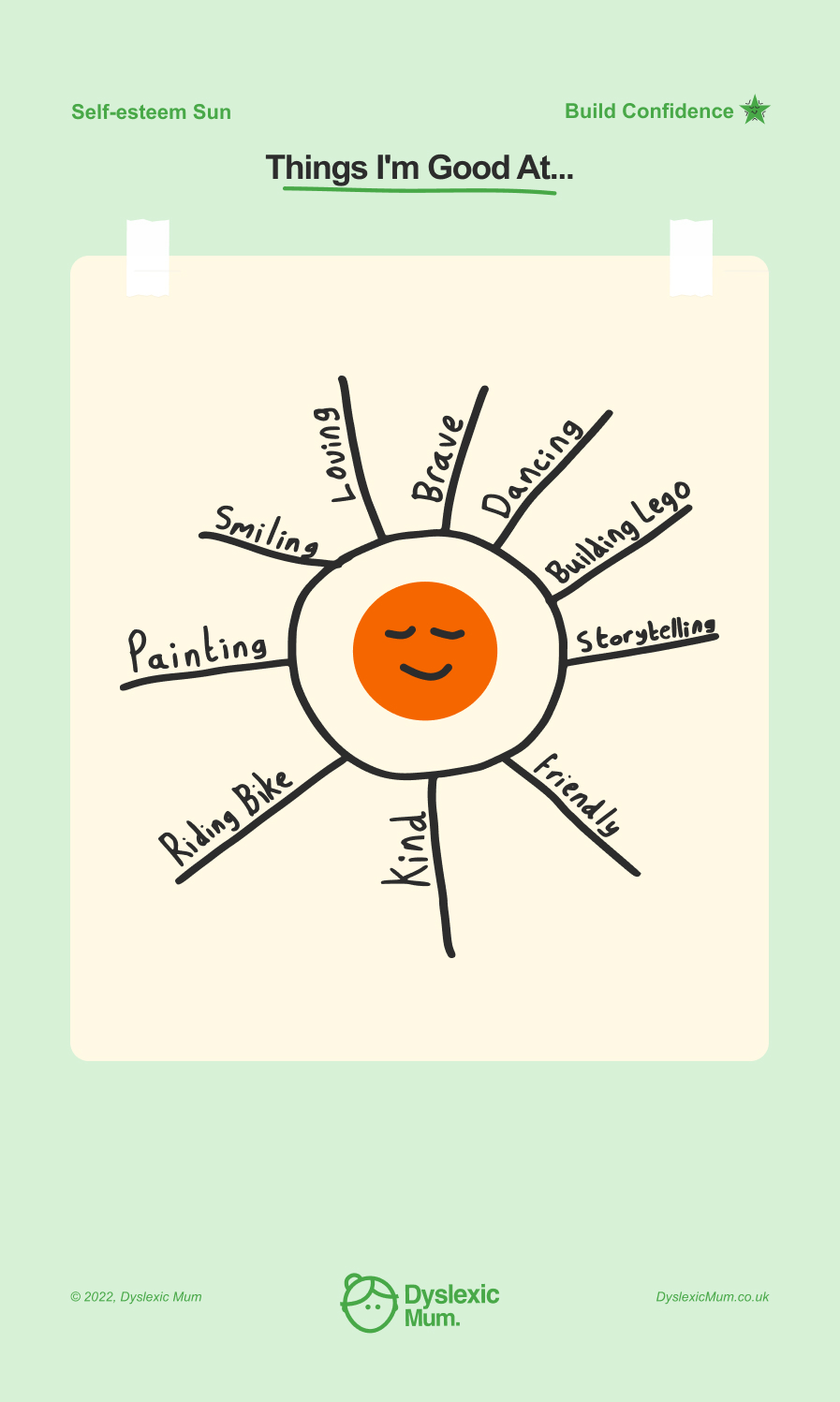Learn how to help a dyslexic child build self-esteem and gain confidence.
Dyslexic children often struggle with reading and writing in school. This can hurt their confidence and motivation, leading to feelings of self-doubt.
You might notice the following behaviours:
- anxiety
- depression
- hyper, naughty
- withdrawn, quiet
Focusing on what a child is good at can help to rebuild their confidence and self-esteem.
Self-esteem Sun Card
Help a dyslexic child reflect on what they are good at by using the ‘Self-Esteem’ card below.
This Mooki Card is based on scientific research, learn more “Self-esteem in dyslexic children”.


Self-esteem and dyslexia
Learn how the Dyslexic Mum made a self-esteem sun with her child and how her to grow in confidence.
“After a long day at school, my child would often come home feeling deflated, believing she was not good at anything. She struggles with reading, writing, and learning new information at school. Sadly, this affected her confidence and self-esteem.
I came up with the idea of creating a ‘Self-Esteem Sun’ together, showing my child all the things she is good at. It’s now proudly displayed on the fridge.”
Watch the clickable video ‘Build confidence’ below, where the Dyslexic Mum demonstrates how to make a self-esteem sun.
When using the ‘self-esteem’ card above follow these top tips:
- Focus on talents – Discuss the child’s talents. If they have difficulty at school, consider their hobbies or clubs. It’s enough if they enjoy an activity; trophies aren’t necessary.
- Personal qualities – The child might be very kind, caring for pets or younger siblings. They may have a close friend or a loving family member. These positive aspects can boost self-esteem and be added to the “Self-esteem Sun”.
- Build confidence – Encourage the child to engage in activities they enjoy. Joining clubs outside school can help them make friends and gain practical skills. Options include Scouts, dance, and sports clubs.
- Lots of praise – Offer plenty of praise for even small achievements, like sharing a toy. Make the child feel proud of their efforts. Avoid pressuring them to win.
Helpful Articles
- 100 famous dyslexic people
- 3 dyslexia strengths you should know about
- How to support dyslexic students’ self-confidence
Designed to help dyslexic children Mooki Cards. Complete with 56 cards and storage wallet. Perfect for using at home or in the classroom. Order your Mooki Cards here!

